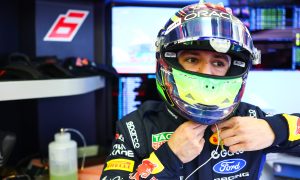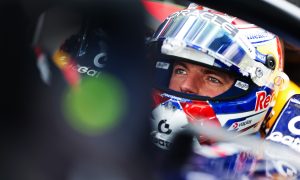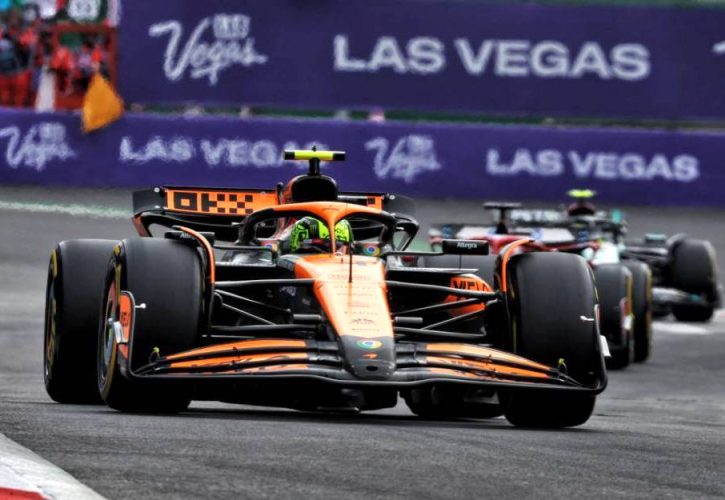
Red Bull team boss Christian Horner defended Max Verstappen’s move against Lando Norris in the pair’s first of two clashes in the Mexico City Grand Prix, arguing that the McLaren driver “wouldn’t have made the corner” without going off.
Verstappen and Norris found themselves once again locked in a tight battle in the opening stages of Sunday’s race at the Autodromo Hermanos Rodriguez, but contrary to Austin, the Dutchman’s defensive maneuvers against his championship rival were on two occasions sanctioned by the stewards who hit Verstappen with a double dose of 10-second penalties.
But Horner opened up a contentious debate about position regarding the first incident involving the two drivers.
Taking advantage of his DRS momentum, Norris attempted an overtake on the outside of the Red Bull driver as the pair entered Turn 4 on lap 10. The two cars went side-by-side into the corner, but Verstappen opened up his trajectory on the exit, which forced Norris off the track and onto the grass.
Horner, relying on GPS data print-outs, met with the media to argue that Norris would not have made the Turn 4 corner without running off track.
According to the Red Bull chief, Norris approached the corner at a much higher speed than during his fastest lap of the race, with significantly more fuel onboard.
"First of all, I think it was very harsh to give two 10-second penalties," Horner said. "I think there's something more fundamental; I mean, obviously there's been a reaction to last weekend.
"I think it's very important for the drivers' stewards and the drivers to sit down. Because [looking at] the GPS, this is on the run down to Turn 4.
"This is actually Lando versus Lando. In Lando's fastest lap of the Grand Prix, the point that he's braking for Turn 4 and then obviously executing the corner.
"On the lap that he has the incident with Max — he is 15 kilometres an hour faster and later on the brakes than his fastest lap of the grand prix.”
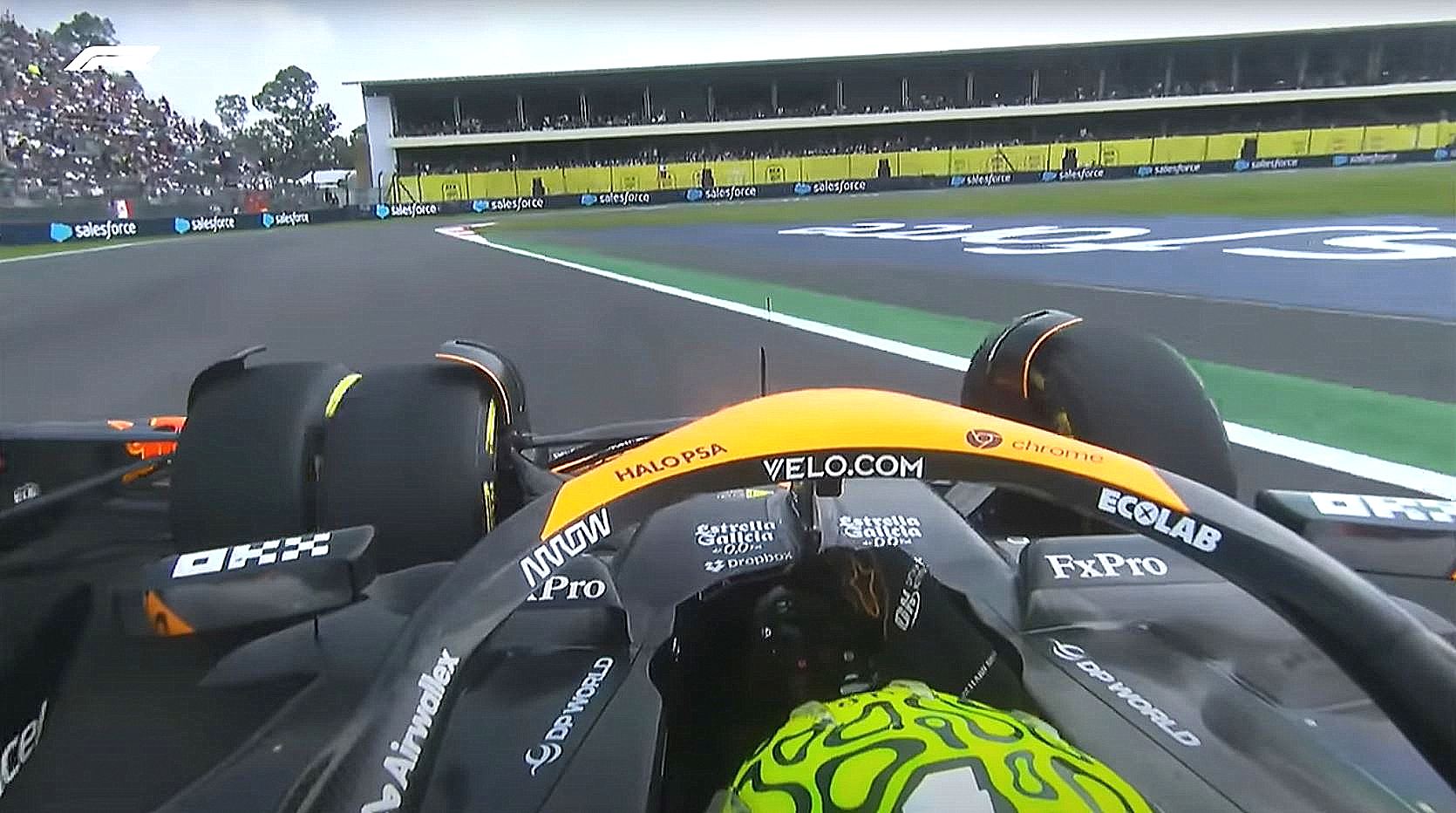
©F1
Horner argued that at such a speed, Norris had little chance of staying within track limits, despite onboard footage appearing to show the McLaren on the right trajectory up until its contact with the Red Bull.
"He wouldn't have made the corner, he would have run off track,” insisted Horner. “You can see from his onboard steering. Of course, at this point in the race, he's got probably 80kg more fuel than at the point that he's done his fastest lap.
"It used to be a reward of the bravest to go around the outside. I think we're in danger of flipping the overtaking laws upside down, where drivers will just try to get their nose ahead at the apex, and then claim that they have to be given room on the exit.
"You can see quite clearly, he's effectively come off the brakes, gone in super late to try and win that argument, as far as the way these regulations are written, and then at that point, you're penalised."
Regarding the Turn 7 clash, Horner appeared more understanding of the penalty issued. He suggested that Verstappen, seeing Norris ahead after Turn 4, likely expected the McLaren driver to relinquish the position.
This expectation, Horner implied, led to a more aggressive approach from Verstappen, resulting in the second incident.
"I think the Turn 7 incident is different. I think Max was expecting Lando to give up the place, he's obviously gone up the inside there, and they've both run wide,” Horner said.
“I can understand effectively forcing the car wide there why there would be a penalty applicable to that.”
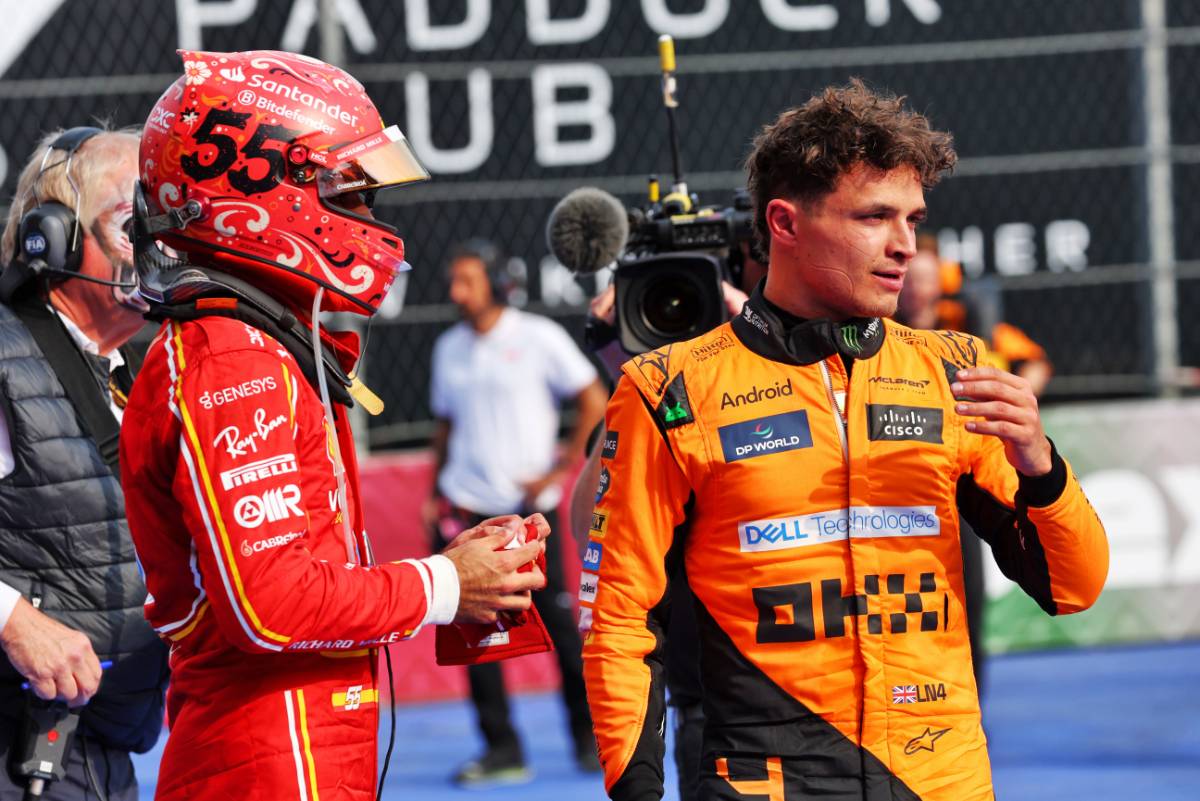
Horner described the sequence of events as an escalation of frustrations due to Norris not giving back the position. He believes that the sport’s guidelines are creating overly complex situations that go against traditional racing principles.
“I just think maybe we're over-complicating things. And when you have to revert to an instruction manual of an overtake...”
For Horner, the heart of the issue lies in the traditional understanding of racing dynamics.
“The racing principles for years have been, if you have the inside line, you dictate the corner,” he asserted.
“And I think the way the regulations or the guidelines have evolved is encouraging a driver to have his nose ahead at the apex, irrelevant of whether you're going to make the corner.”
Keep up to date with all the F1 news via Facebook and Twitter






